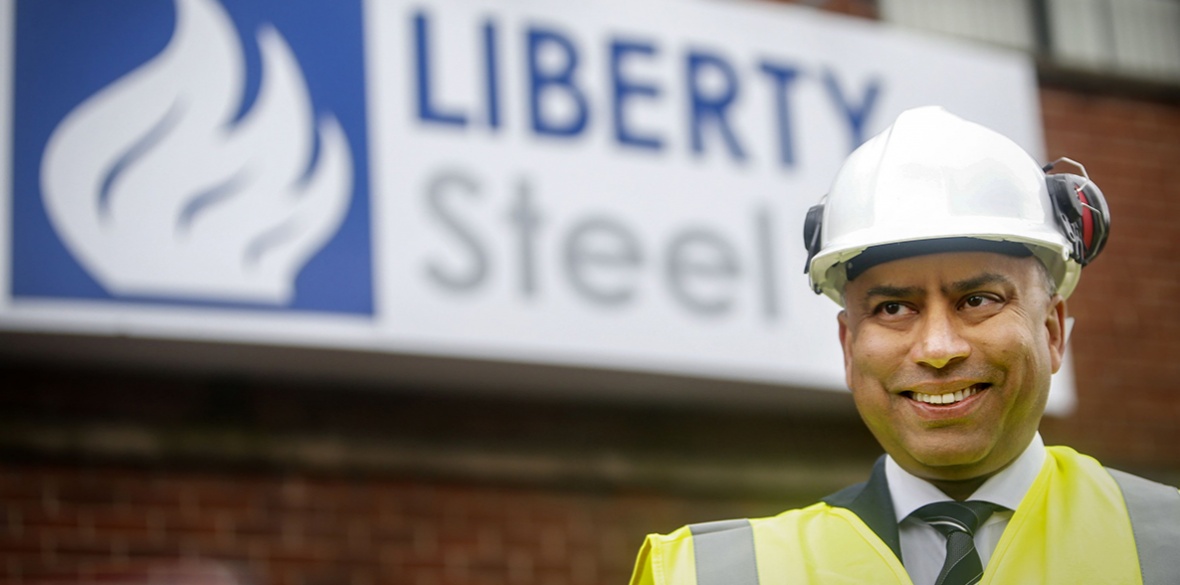This is the last article you can read this month
You can read more article this month
You can read more articles this month
Sorry your limit is up for this month
Reset on:
Please help support the Morning Star by subscribing here
THERE is much rejoicing at the decision of Liberty Steel owner Sanjeev Gupta to inject £50 million into his company’s operations in Britain. This means a reprieve for 650 jobs in Rotherham and smaller numbers in some of Liberty’s 10 other sites.
The news follows months of anxiety after the collapse of Gupta’s main lenders Greensill Capital, despite the best efforts of the latter’s adviser and former prime minister David Cameron to enrich himself.
But the steel industry has long been in a parlous state, with substantial closures or redundancies in England, Wales and Scotland.
Although the workforce has been slashed to 30,000, numerous communities still rely on their local steelworks as the basis of their economic and social life.
Indeed, with one eye on essential parts for the Royal Navy and the other on the next general election, the Ministry of Defence has recently snapped up Sheffield Forgemasters for £2.6m to rescue a plant long a stronghold of the local Communist Party.
Not only Britain’s armed forces need the steel industry’s products. Many other branches of extraction, manufacturing depend on domestic and imported steel products for their very existence, not least in construction.
This makes it all the more scandalous that the fate of a large part of what remains of the British steel industry lies in the hands of Gupta and his ilk, a lavish party-giver whose international empire is in hock to the Swiss bank Credit Suisse — and who himself is under investigation by the Serious Fraud Office.
Following the privatisation of steel in late 1988, the history of the industry in Britain has been one of mergers, sell-offs, takeovers, spin-outs and seemingly inexorable decline. Production and employment fell by almost two-thirds up to the eve of the Covid pandemic.
The monopolies dominating the sector in Britain today are the Spanish-owned Celsa Group, Chinese-owned British Steel and the Indian-owned Tata and Liberty groups.
Yet the immediate prospects for the steel industry internationally are bright. Demand, production and prices are soaring above pre-pandemic levels. Even in a more green-conscious world, steel has its advantages (recyclability, durability) as well as disadvantages (energy consumption, thermal conductivity).
In Britain, however, the industry staggers from one crisis to another, devoid of macro-level planning and at the mercy of those like Gupta who prioritise investment in their projects elsewhere.
On the two most urgent problems, the Conservative central government is refusing to take the steps necessary to protect this strategically important industry.
First, it refuses to take action against yet another rise in industrial energy prices by the uncapped post-nationalisation monopolies. As a huge consumer of electricity, the steel industry in Britain pays the highest rates in Europe and twice as much as in the US.
Second, the protectionist regime against imports inherited from the EU is now to be diluted, instead of being retained in full and extended — if only temporarily — to cover imports from Europe. Targeting Chinese steel appears more of an ideological policy when Britain imports seven times as much from the EU.
In any event, a major transition to low-carbon production and steel substitutes is necessary and inevitable. For the future as well as the present, monopoly-dominated anarchy must be replaced by economic planning and new forms of participative, democratic public ownership.











